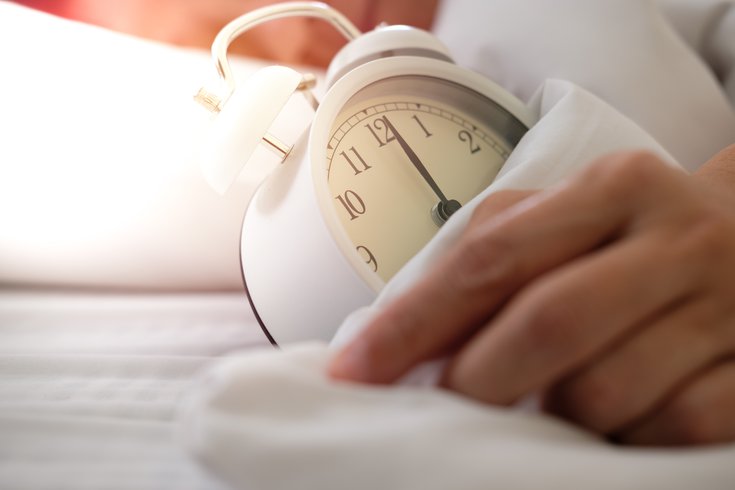
May 16, 2023
 Source/Image licensed from Ingram Image
Source/Image licensed from Ingram Image
One of the most common obstacles to getting back to sleep after waking up in the night is the tendency to constantly watch the clock, sleep experts say.
People who wake up several times a night and monitor the clock while struggling to fall back asleep may be making their insomnia worse, sleep experts say.
About 10% of adults worldwide experience insomnia, a common sleep disorder in which people regularly struggle to fall asleep or wake up frequently and have trouble falling asleep again. This lack of sufficient sleep not only affects one's mood and work performance, but it also can have detrimental health effects.
The tendency to watch the clock is among the most common obstacles people face in getting back to sleep, experts say.
Most people have woken up in the middle of the night, checked the clock and realized they need to get ready for work in a few hours. It is natural to stress out about getting enough sleep. But doctors say that counting down the remaining hours stresses out the body, preventing a quick return to sleep.
"Looking at the clock will make people feel anxious about not falling back to sleep," Dr. Brian Murray, a sleep neurologist at Sunnybrook Health Sciences Centre in Toronto, Canada, told CBC News in 2016. "That causes the body to release fight-or-flight hormones, which interfere with the sleep onset process."
Adults need about 7 to 8 hours of sleep each night. But focusing on one's nightly sleep total can be counterintuitive, because it stresses people out, sleep specialists say.
"Altogether, sleep quality tends to become worse in people who check the clock during the night," Carleara Weiss, a sleep science advisor for Aeroflow Sleep, a company that produces CPAP machines, told Well+Good. "The science in behavioral sleep medicine indicates that the clock-monitoring habit may increase pre-sleep anxiety and worry during the night."
People who are regular clock watchers often find themselves waking up every night at the same time to check the clock, she added.
So, what is a better strategy?
Murray and other sleep experts advise against keeping any electronic devices – everything from smartphones to tablets to smart watches – in bed. The blue light emitting from them can mess up sleep patterns even further, making one's brain think it is daytime. For people who insist on watching TV to fall back asleep, experts advise wearing sunglasses.
People who choose to stay in bed as they wait to fall back asleep are advised to keep their rooms quiet and dark. Sometimes, getting up and doing something enjoyable can help lull people back to sleep faster – like making some tea and reading quietly in a dimly lit area until feeling drowsy.
People battling anxious thoughts may find that relaxation techniques, like deep breathing and meditation, help them refocus their thoughts. Sometimes, writing down those worries alongside potential solutions earlier in the day can help prevent an onslaught of anxiety during the midnight hour.
Practicing overall good sleep hygiene also can help.
Sleep experts recommend getting up and going to bed at the same time every day – even on weekends and holidays. Try not to nap during the day and create some bedtime rituals, which will help the body recognize that it is time to fall asleep. These rituals could include reading, meditation or a warm bath. Also, avoid caffeine, alcohol and large meals before bed. Daily exercise also reduce stress, making it easier to fall asleep at night. Just don't work out too closely to bedtime.
Insomnia isn't the only health condition that causes people to wake up multiple times each night, sleep experts caution. Heart disease, high blood pressure and some cancers also can disrupt sleep. And when people don't get enough sleep on a regular basis, it increases the risk of other health problems, like obesity and type 2 diabetes. Experts recommend people who consistently wake up in the middle of the night to be evaluated by their doctor to identify any underlying health issues.